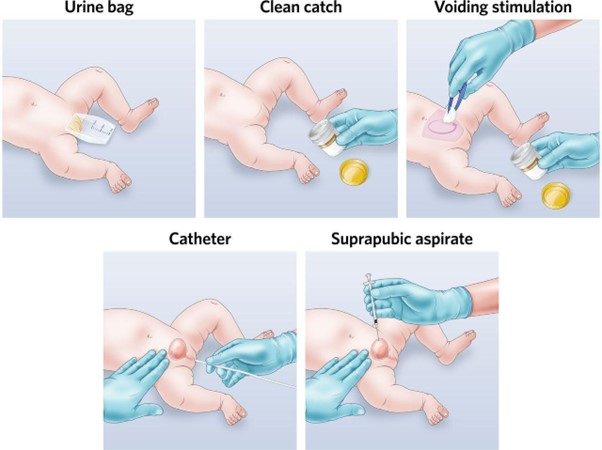A nurse in a provider's office is assessing an adolescent who has been taking ibuprofen for 6 months to treat juvenile idiopathic arthritis. Which of the following questions should the nurse ask to assess for an adverse effect of this medication?
"Have you experienced muscle stiffness?"
"Have you had any stomach pain or bloody stools?"
"Have you experienced a dry cough?"
"Have you noticed an increase in urine output?"
The Correct Answer is B
A. Muscle stiffness is not a common or serious adverse effect of ibuprofen. Ibuprofen is an anti-inflammatory drug that can reduce pain and stiffness caused by arthritis.
B. Stomach pain or bloody stools are signs of gastrointestinal bleeding, which is a serious and potentially fatal adverse effect of ibuprofen. Ibuprofen is a nonsteroidal anti-inflammatory drug (NSAID) that can cause ulceration, perforation, and hemorrhage of the stomach or intestines . The nurse should ask the client about any gastrointestinal symptoms and advise them to avoid alcohol, smoking, and other NSAIDs while taking ibuprofen.
C. Dry cough is not a common or serious adverse effect of ibuprofen. Dry cough is more likely to be caused by angiotensin-converting enzyme (ACE) inhibitors, which are used to treat hypertension and heart failure.
D. Increase in urine output is not a common or serious adverse effect of ibuprofen. Ibuprofen can cause renal impairment, which can lead to decreased urine output, not increased urine output. The nurse should monitor the client's renal function tests and fluid balance while taking ibuprofen.
Nursing Test Bank
Naxlex Comprehensive Predictor Exams
Related Questions
Correct Answer is B
Explanation
An antibiotic that can cause nephrotoxicity is an antibiotic that can damage the kidneys, which are the organs that filter the blood and remove waste products and excess fluid from the body. Some examples of nephrotoxic antibiotics are aminoglycosides, vancomycin, amphotericin B, and sulfonamides.
Serum creatinine is a laboratory value that measures the amount of creatinine in the blood. Creatinine is a waste product that is produced by the breakdown of muscle tissue and is normally excreted by the kidneys. A high serum creatinine level indicates that the kidneys are not functioning properly and are unable to filter out the creatinine from the blood.
Before administering an antibiotic that can cause nephrotoxicity, it is important for the practical nurse (PN) to review the serum creatinine level of the client, as it reflects the kidney function and the risk of nephrotoxicity. A normal serum creatinine level ranges from 0.6 to 1.2 mg/dL for men and 0.5 to 1.1 mg/dL for women. If the serum creatinine level is elevated, it may indicate that the client has impaired kidney function or is developing nephrotoxicity from the antibiotic. In this case, the PN should notify the primary healthcare provider and monitor the client for signs and symptoms of nephrotoxicity, such as decreased urine output, edema, hypertension, or electrolyte imbalances .

Correct Answer is B
Explanation
Choice A reason:
Discarding the first 10 mL of urine is a common practice for obtaining a urine sample for certain tests, but it is not specifically necessary for a urine culture. In a urine culture, the goal is to obtain a sample directly from the bladder to identify any bacteria present, so discarding the initial urine is not necessary.
Choice B reason
Donning sterile gloves prior to the procedure is the appropriate action for the nurse to take. When catheterizing a toddler for a urine culture, it is essential to maintain a sterile procedure to reduce the risk of infection and ensure the safety of the child. Using sterile gloves is a crucial step in preventing contamination during the catheterization process.
Choice C reason
The size of the catheter (12-French) mentioned in option C may not be appropriate for a toddler. The size of the catheter used for a toddler would generally be smaller, depending on the age and size of the child. The appropriate catheter size should be determined based on the child's age and condition.
Choice D reason
EMLA cream is a topical anaesthetic cream used to numb the skin before certain procedures. While it might be appropriate in some cases, it is not typically used for catheterization procedures in toddlers. Catheterization is a quick procedure, and using EMLA cream may not be necessary or practical in this situation.

Whether you are a student looking to ace your exams or a practicing nurse seeking to enhance your expertise , our nursing education contents will empower you with the confidence and competence to make a difference in the lives of patients and become a respected leader in the healthcare field.
Visit Naxlex, invest in your future and unlock endless possibilities with our unparalleled nursing education contents today
Report Wrong Answer on the Current Question
Do you disagree with the answer? If yes, what is your expected answer? Explain.
Kindly be descriptive with the issue you are facing.
